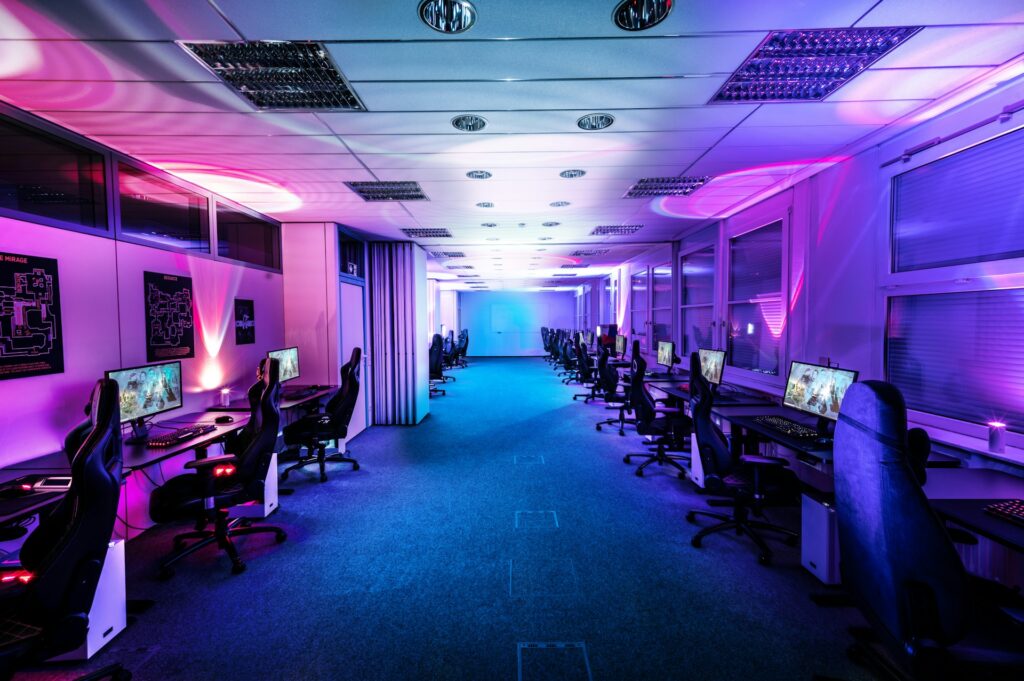The gaming world has seen remarkable growth over the past few decades, going from simple arcade games to engaging, high-definition adventures that have pulled in a global audience. This boom has not only made gaming immensely popular but has also turned it into a thriving industry. Game development has been central to this transformation. This career artfully blends creativity, cutting-edge technology, and storytelling. In this article, we’ll explore what it means to build a career in game development, where passion and profession come together.
What Does a Career in Game Development Entail?
Working in game development is a multifaceted journey that begins with conceptualization, where ideas are brainstormed, and a game’s core concept emerges. This phase is crucial as it sets the direction for the entire project. The design phase follows, involving the creation of the game’s mechanics, levels, and story. Here, the game starts to take shape with a focus on how it will be played and experienced by users.
Programming is the backbone of game development, turning ideas and designs into a playable product. This stage requires a deep understanding of coding and software development. Once the game is functional, it enters the testing phase, where it’s rigorously tested for bugs, gameplay issues, and user experience. The final stage is the launch, where the game is released to the public, marking the culmination of the development process.
Key roles in this process include game designers, who craft the game’s concept and mechanics; programmers, who bring the game to life through code; artists, responsible for the visual elements; sound engineers, who create the auditory experience; and testers, who ensure the game is ready for release.
A unique aspect of game development is the creation of games like roulette and other online casino games. These games require a deep understanding of both gaming mechanics and the nuances of casino-style play. Developers must balance the excitement of chance with fair and engaging gameplay, ensuring a captivating experience for players.
The required skills for a career in game development are diverse. Technical skills in programming and software development are fundamental. Creativity is essential in designing engaging and original games. Teamwork is crucial as game development is typically a collaborative effort. Problem-solving abilities are also vital, as developers often face technical and design challenges that require innovative solutions. Before you start your search, you’ll want to understand the job market for 2024.
The Reality Behind the Glamour

Game development is often perceived as a dream job for gamers, but this view overlooks the industry’s complexities. While creativity and passion are central, the reality involves rigorous technical work, problem-solving, and attention to detail. The notion that game development is just about playing and creating games is a big misconception. It’s a field that demands a blend of artistic vision and technical prowess, often under tight deadlines.
The game development industry faces several challenges, including the increasing complexity of games, meeting player expectations, and adapting to new platforms and technologies. Developers often work under ‘crunch time’ – periods of intense work to meet deadlines, which can lead to stress and burnout. Additionally, the industry is known for its project-based nature, leading to concerns about job stability and work-life balance.
Education Pathways and Skill Development
Aspiring game developers can choose between formal education and learning on their own. Formal education provides structured learning and access to resources while self-teaching offers flexibility. Recommended courses and degrees include computer science, game design, graphic design, programming languages, 3D modeling, and animation. Online resources, workshops, and gaming communities are a great way to learn new skills and stay updated with industry trends.
Breaking into the Industry
Breaking into the industry requires building a solid portfolio that showcases your best work, including games developed, design documents, or code samples. Networking is essential, and attending industry events, game jams, and conferences can provide valuable opportunities. Entry-level positions and internships are excellent ways to gain practical experience, industry exposure, and the chance to work on real projects, which are invaluable for career growth.
